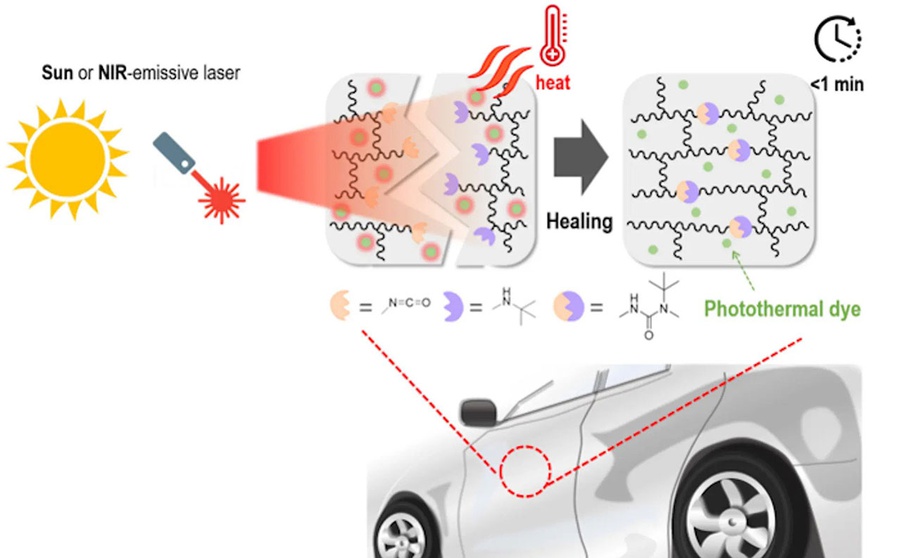A new self-healing coating was developed by scientists at the Korea Research Institute of Chemical Technology (KRICT). Study published in ACS Applied Polymer Materials.
The coating contains a polymer network based on acrylic polyol with the so-called spatial-urea structure. Polymers have dynamic chemical bonds that can break apart in response to impact and then reassemble in their original location, effectively repairing minor damage such as scratches. In this case, the affected area is exposed to heat, which provides an organic photothermal dye that captures infrared light.
In tests on a model car, the team showed that the coating healed scratches in 30 minutes under midday sunlight. In theory, this means that someone can scratch a piece of your car's bodywork, but the scratch will be gone before you get back.
The researchers found that the process can be greatly accelerated with concentrated light. To do this, you can use an ordinary magnifying glass.
The scientists say the new coating has several advantages over existing self-healing coatings. The use of organic photothermal dyes means that they require far less energy to operate than conventional inorganic dyes, which are "activated" by heat guns or concentrated UV light. In addition, a new coating can heal a scratch in the same place several times.
The new coating is clear, does not mix with the base color and can be applied using existing spray techniques. In addition to the automotive industry, this technology can be applied to other areas, such as construction and consumer electronics.
Source: Eurekalert


